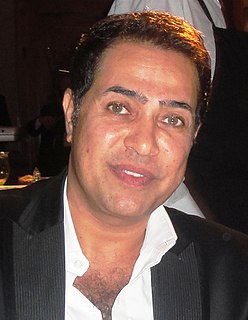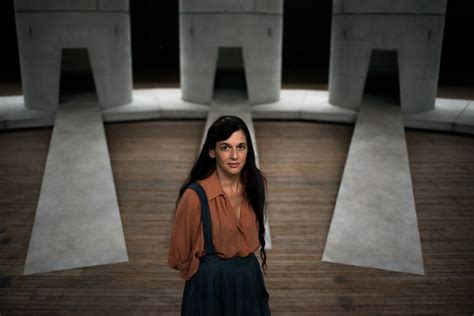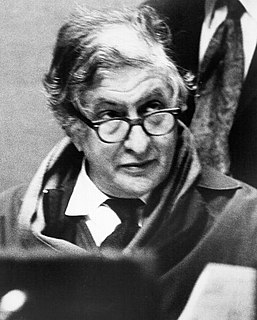A Quote by Hakim
IN PERSIA I SAW that poetry is meant to be set to music & chanted or sung--for one reason alone--because it works.A right combination of image & tune plunges the audience into a hal (something between emotional/aesthetic mood & trance of hyperawareness), outbursts of weeping, fits of dancing--measurable physical response to art. For us the link between poetry & body died with the bardic era--we read under the influence of a cartesian anaesthetic gas.
Related Quotes
There's no difference between lyrics and poetry. Words are words. The only difference is the people who are in academic positions and call themselves poets and have an academic stance. They've got something to lose if they say it's all poetry; if there's not music to it, and you have to wear a certain kind of checkered shirt or something like that. It's all the same. Lyrics are lyrics, poetry is poetry, lyrics are poetry, and poetry is lyrics. They are interchangeable to me.
Poetry is the most informative of all of the arts because everything comes down to poetry. No matter what it is we are describing, ultimately we use either a metaphor; or we say "that's poetry in motion." You drink a glass of wine and say, "that's poetry in a bottle." Everything is poetry, so I think we come down to emotional information. And that's what poetry conveys.
I think of poetry as something out there in the world and within each of us. I don't mean that everyone can write poetry - it's an art, a craft, it requires enormous commitment like any art. But there's a core of desire in each of us and poetry goes to and comes from that core. It's the social, economic, institutional gap that makes it difficult.
Whatever they are, can Comics be "Art"? Of course they can. The "Art" in a piece is something independent of genre, form, or material. My feeling is that most paintings, most films, most music, most literature and, indeed, most comics fail as "Art." A masterpiece in any genre, form or material is equally "good." It's ridiculous to impose a hierarchy of value on art. The division between high and low art is one that cannot be defended because it has no correlation to aesthetic response.
Often poetry, especially the sort of poetry I write, is concerned with looking at the borders between the sensual and the spiritual and seeing them as divided, equivocal, that mystery somehow can break in to the ordinary. And we read poetry I think in part, to gain a sense of that intimacy with things that we can't understand that are unable to be understood but that buoy up our lives.
I feel that music on the screen can seek out and intensify the inner thoughts of the characters. It can invest a scene with terror, grandeur, gaiety, or misery. It can propel narrative switftly forward, or slow it down. It often lifts mere dialogue into the realm of poetry. Finally, it is the communicating link between the screen and the audience, reaching out and enveloping all into one single experience.


































